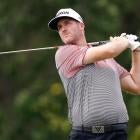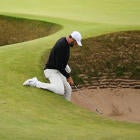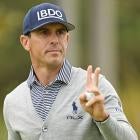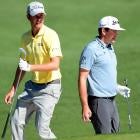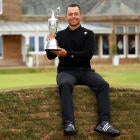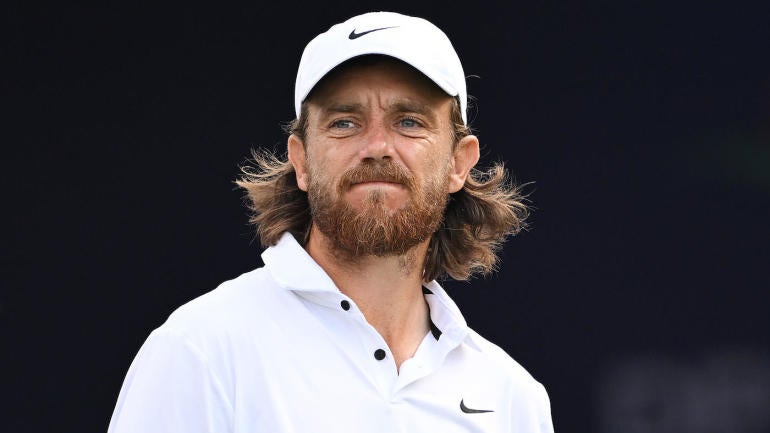
Two things happened after Tommy Fleetwood won the Dubai Invitational on Sunday over Rory McIlroy with a massive 16-foot birdie putt on the final hole: 1) Fleetwood said that, like most professional golfers, he doesn't win as much as he would like, and 2) My colleague, Rick Gehman, predicted on our First Cut Podcast that Fleetwood would have a massive 2024.
Both statements intrigued me.
I can't speak for him, but Fleetwood certainly does not win as much as other people would like. Though he's won eight Official World Golf Ranking events in his career, his overall OWGR winning percentage is below 3%. This is great for an average player but average for a great player ... like Fleetwood. Then there is the 0-for-127 start to his PGA Tour career (albeit with nine second- or third-place finishes). All of Fleetwood's winning has happened in non-PGA Tour events.
You could argue, though, that the almost-33-year-old is playing the best golf of his career. According to Data Golf, his 50-round rolling strokes gained average is right at the top five in the world threshold, and at the end of 2023, it was just above it, which represented his high-water mark (including the run in 2017-19 when he finished in the top five in three different majors).
His driving struggles in 2021 seem to be a thing of the past, and his iron play is as good as it has ever been. All the ingredients are there for what could be a monstrous 2024. The question now is the same as it has been for much of his career: Can he go and do it?
Last year, he was close. He had eight top 10s on the PGA Tour, including a tough playoff loss at the Canadian Open and an Open Championship where he held the co-lead after Round 1. He also finished T5 at the U.S. Open at Los Angeles Country Club, albeit with a final-round 63. He was never truly in the mix at that one.
Winning on the PGA Tour and winning major championships are different things, but for Fleetwood, they are more similar than most. Not that winning in Canada or Dublin, Ohio, would mean as much as a Masters or PGA Championship, but he has the game to win a major, which means he has the game to win a regular PGA Tour event. The problem for him at many of the places he tees it up is that, in a restructured PGA Tour world, he's now facing most of the best players in the world at both majors and non-majors alike.
Fleetwood has a couple of other problems, the first of which is not uncommon among pros. He's in contention going into the final round quite a bit, but given his poor final-round scoring, not as often as it takes to win at the clip at which he should probably be winning. In his career, he has been in the top three on the leaderboard going into the final round of an event 27 times and won just four of them. If your conversion rate is that low, you're going to have to raise your contention rate quite a bit.
"Even I think the best players in the world and the people that win the most -- Rory very much at the top of that list -- if you look at the amount of times he actually just puts himself there, I think that's the No. 1 thing you can do," said Fleetwood on Tuesday. "Keep playing to a high standard, practicing to a high standard, putting yourself in those positions all the time, and then you get a chance of winning.
"It's not going to work out all the time, and it's very, very hard, and there are always players that play great and that are going to be hitting great shots. You just have to be there, and like I say, your times will come. My time doesn't happen, or it hasn't happened nearly as much as I would like, but you know, we just hope that it comes more often in the future."
The second problem exacerbates the first: Fleetwood does not close in the final round. According to Data Golf, Fleetwood's expected wins going into final rounds when he is inside the top three on the leaderboard is 5.3, and he's managed to lower that expected win number to 3.4 based on his final-round play (again, his actual win number in these events is four). This is fine if you're somebody like McIlroy, whose expected win number also goes down in final rounds where he enters in the top three but gets into that spot so often that he still finds two or three wins a year. It's not fine if you're somebody who's not constantly in contention. Again, to win more, either your contention rate or conversion rate has to increase.
Here's another interesting comparison. Bryson DeChambeau has a similar expected wins number as Fleetwood when going into final rounds where he's in the top three. Fleetwood's is 5.3. DeChambeau's is 5.4. But, in those scenarios, DeChambeau has actually raised his expected wins number to 7.2 based on his play and won nine of those. Remember, Fleetwood has lowered his to 3.4. Fleetwood and DeChambeau go in opposite directions when they enter in the top three on the leaderboard.
"There's always a couple of things that happen when you're contention and you don't win," said Fleetwood. "Either you'd played well and somebody has played better than you, or you might have hit a bad shot at the wrong time. I've done it plenty of times.
"Back nine in a tournament where at the end of the tournament, the tournament is 72 holes, and you play to the very end, and whether there are mistakes or a bad shot comes later on in the tournament, people recognize it more, whether you made mistakes early on and have to fight your way back.
"I think I've had a lot of near misses where I feel like I might have hit a shot that has cost me a tournament, and other times people play well. Experience tells you that there's going to be those moments. I think the more that you're in contention, the more that you're in those situations, obviously the more it's going to show up because you're not going to win every single week you play.
"I think that's just the way the game is. This time it was my turn, and you know, just be happy when those times come."
I'm also optimistic about Fleetwood in 2024. He's an elite ball-striker, which is most important. And some players take longer to get comfortable with the discomfort of leading and winning. That does not mean he will win a major or even a PGA Tour event this year, but as long as he focuses on increasing one of those numbers -- contention rate or conversion rate -- we could be looking at the best year of his career.









